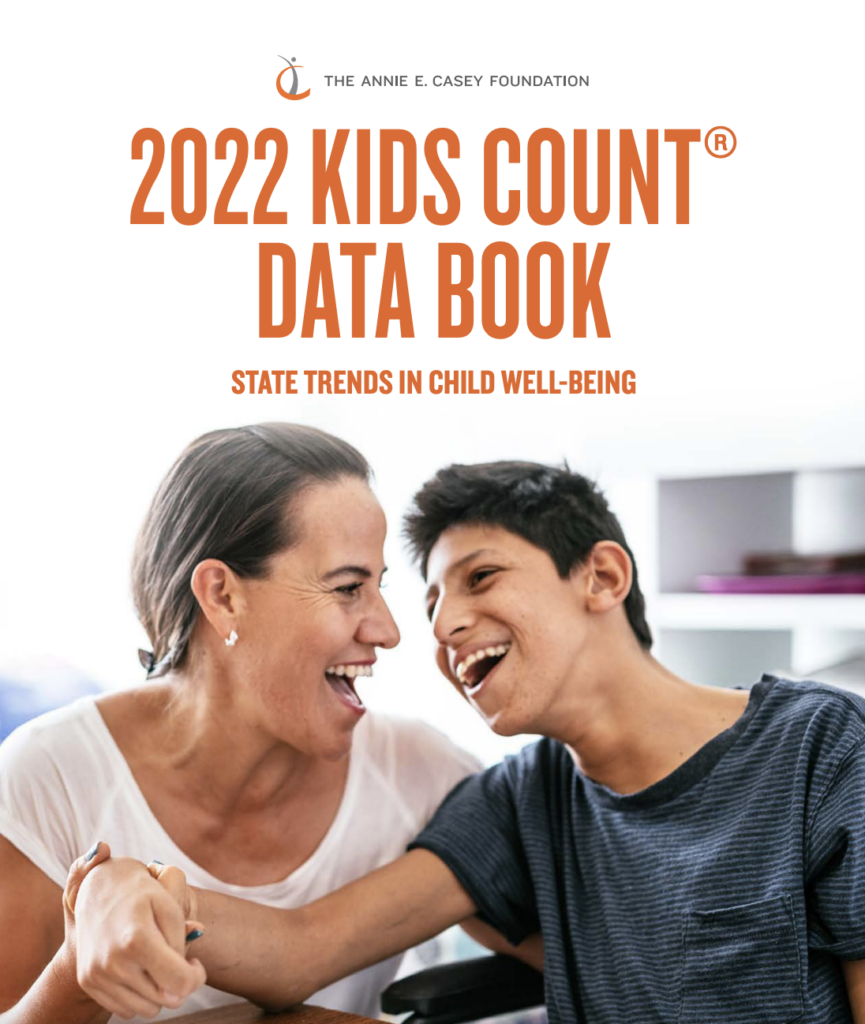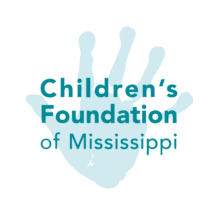Kids Count 2022 Data Book Release
Mississippi Ranks 48th in Overall Child Well-Being

Mississippi ranks 48th in child well-being according to the 2022 KIDS COUNT®
Data Book, a 50-state report of recent household data developed by the Annie E. Casey Foundation analyzing how children and families are faring. Children in America are also in the midst of a mental health crisis, struggling with anxiety and depression at unprecedented levels. This annual resource focuses on youth mental health for the first time, concurring with a recent assessment by the U.S. surgeon general that conditions amount to a “mental health pandemic.”
The Data Book reports that children in more than 40 states and the District of Columbia were more likely to encounter anxiety or depression during the first year of the COVID-19 crisis than previously, with the national figure jumping 26%, from 9.4% of children ages 3-17 (5.8 million kids) to 11.8% (7.3 million) between 2016 and 2020, the year COVID-19 swept across the United States. This increase represents 1.5 million more children who are struggling to make it through the day. The data in this year’s report are a mix of pre-pandemic and more recent figures and are the latest available.
The report found that 9.8% of Mississippi’s children had anxiety or depression or both in 2020, a slight
decrease from 2016 (10.9%).
The Data Book sheds light on the health, economic and other challenges affecting American children.
Further, the report focuses on the disparate impact of those challenges on children of color. Each year,
it presents national and state data from 16 indicators in four domains — economic well-being, education,
health, and family and community factors — and ranks the states according to how children are faring
overall.
Mississippi’s bright spot remains in steady gains in education, with 15% of students not graduating on time,
ranking 28th in the country. Between 2008-2012 and 2016-2020, the percentage of teens ages 16 to 19
who are not attending school and not working improved from 11% to 9%.
While Mississippi’s overall ranking is 48th, the state ranks 39th in education, 49th in economic well-being,
and 50th in each of the other domains.
Although Mississippi continues to have the highest percentage of children in poverty, it has decreased from
32% in 2008-2012 to 28% in 2016-2020. Youth who grow up in poverty are two to three times more likely
to develop mental health conditions than their peers. The recently launched 988 suicide and crisis lifeline
is a timely and critical resource to address unprecedented mental health concerns. Learn more about the
988 program at 988 Suicide and Crisis Lifeline | Federal Communications Commission (fcc.gov).
“Findings from this report provide many opportunities to invest in evidence-based and fully funded programs
on behalf of Mississippi’s children and youth,” said Linda Southward, executive director of the Children’s
Foundation of Mississippi and coordinator of Mississippi KIDS COUNT. “The Children’s Foundation of
Mississippi believes that for Mississippi to reach its potential, we must make sure that our children reach
their potential.”
“Mental health is just as important as physical health in a child’s ability to thrive,” said Lisa Hamilton,
president and CEO of the Annie E. Casey Foundation. “As our nation continues to navigate the fallout from
the COVID crisis, policymakers must do more to ensure all kids have access to the care and support they
need to cope and live full lives.”
The Annie E. Casey Foundation calls for lawmakers to heed the surgeon general’s warning and respond
by developing programs and policies to ease mental health burdens on children and their families. They
urge policymakers to:
- Prioritize meeting kids’ basic needs. Children need a solid foundation of nutritious food, stable housing, and safe neighborhoods — and their families need financial stability — to foster positive mental health and wellness.
- Ensure every child has access to the mental health care they need, when and where they need it. Schools should increase the presence of social workers, psychologists, and other mental health professionals on staff and strive to meet the 250-to-1 ratio of students to counselors recommended by the American School Counselor Association. They can work with local health care providers and local and state governments to make additional federal resources available and coordinate treatment.
- Bolster mental health care that considers young people’s experiences and identities. It should be trauma-informed — designed to promote a child’s healing and emotional security — and culturally relevant to the child’s life. It should be guided by the latest evidence and research and should be geared toward early intervention, which can be especially important in the absence of a formal diagnosis of mental illness.
RELEASE INFORMATION
The 2022 KIDS COUNT® Data Book is available at www.aecf.org. Additional information is available
at www.aecf.org/databook. Journalists interested in creating maps, graphs, and rankings in stories about
the Data Book can use the KIDS COUNT Data Center at http://datacenter.kidscount.org.
About the Children’s Foundation of Mississippi
The Children’s Foundation of Mississippi is an independent operating foundation focused on improving the
policies and systems that affect the well-being of children in our state. We were founded in 2019 to serve
as a convener, facilitator, advocate, and catalyst for positive change.
ABOUT THE ANNIE E. CASEY FOUNDATION
The Annie E. Casey Foundation creates a brighter future for the nation’s young children, youth, and young
adults by developing solutions to strengthen families, build paths to economic opportunity and transform
struggling communities into safer and healthier places to live, work and grow. For more information, visit
www.aecf.org. KIDS COUNT® is a registered trademark of the Annie E. Casey Foundation.


